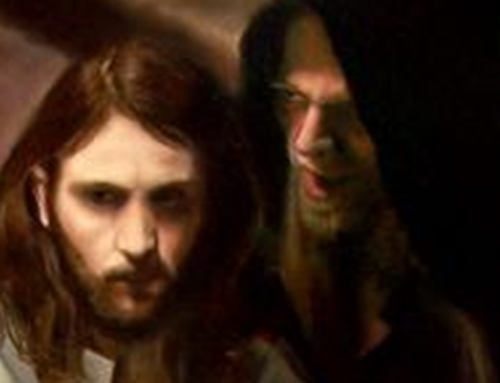It doesn’t happen very often, nowadays, that the media refer to Bible stories. Recently, however, I read at least two references to today’s gospel reading about king Herod. First of all the pope, on a visit to Asia, compared those who build walls and separate children from their parents, or hold them in prison camps, to king Herod. If you have followed the pope’s speeches or watched “The Two Popes” on Netflix, a film I highly recommend, you know that pope Francis is not afraid to denounce wrongdoing. Although he didn’t actually name Donald Trump, there could be no mistake as to what he had in mind. Then, after the latest elections in the UK, someone wrote, “That’s it then – Caligula on one side of the Atlantic and Herod on the other”.
Whether or not you agree, and you don’t have to – my sermon does not depend on it, the issue of children living in poverty, even in developed countries like the UK, is a real one. An estimated 30% of British children live in poverty. This is if we take into account the costs of essential daily needs. And if anything, things appear to be getting worse. All the attention that has gone to Brexit, has not helped to address such shameful social conditions. I am afraid things will not suddenly improve on the 31st of January. After that the British government will be busy negotiating trade deals with all the individual EU member states.
It therefore continues to be necessary, as the Most Rev Mark Strange, Primus of the Scottish Episcopal Church, has done, to remind politicians (and I quote) “that true civilization must have at its heart love, generosity and care”. I doubt whether this can always be said about our governments. But then, if we have made so little progress, if children are still exploited in poor countries, if profit and power and deregulation are still worshiped like gods, then what is the difference with the time of Jesus? I think there is no fundamental difference, apart from the fact that Herod didn’t need any votes. He could skip the unrealistic campaign promises and suggestions of prosperity for everyone. Could it be that we are actually at a disadvantage here? That we think we have more influence than we actually do, whether we vote normally or strategically?
Lessons from the flight to Egypt
It is precisely because of these timeless problems, that the gospel story can help us. For how did the holy family respond to the threats posed by powers they could not control? What can we learn from them? The flight of the holy family has given rise to many legends and many works of art. It has even stimulated the popularity of landscape painting. And in the 15th Century Netherlands it became popular to depict Mary, Joseph and Jesus (and sometimes also James, the brother of Jesus) resting on this journey. I like this detail, because it brings out the humanity of Christ. Even when we are running away from danger, we sometimes need to rest.
The flight itself must have been traumatic. Even though Jesus was probably unaware of the danger they were fleeing from, children can often sense the anxiety of the parents and be influenced by these things indirectly. This whole episode came to be considered as 1 of the 7 sorrows of Mary. Joseph must also have been stressed, because in those days the father was responsible for the decisions about and the safety of the whole family. But fortunately an angel had spoken to him in a dream before, and now once again, he was wise enough to listen to what the angel had to say.
Picking your fights wisely
Now I believe there are several important things to be learnt from this story, which we can apply in our lives today. First of all running away from danger, avoiding certain environments, is nothing to be ashamed of. It may be the best course of action in certain circumstances. We tend to picture God and Jesus and the angels as not being afraid of anything, which is true in a way, but that does not mean they always confront danger head on. Jesus would later confront the devil in the wilderness, and he would confront the money changers in the temple. Ultimately he would confront death itself, but here God’s message via the angel is clearly to avoid trouble.
If the holy family was instructed to flee, surely we should also seek God’s wisdom when it comes to finding a safe place to live and raise our children, a safe place to work, whether it is paid or voluntary work, etc.
But the whole point of this story is that there are many circumstances we cannot control. It is one thing to come up with ideas to improve the way governments or the economy function, it is another to see these ideas being realised. Often nothing happens, even when large groups of people are in favour of change.
I am sure that, for instance, we would all like to do something about the killing of innocent civilians, including children, in Yemen, or about the poisoning of our environment. Many of us are already doing all kind of things to contribute to change. Still the injustices and the pollution remain and this can be very depressing. We can feel so helpless.
Stop blaming yourself
The other day I read a very interesting article claiming that perhaps we have gone too far in blaming ourselves as individual consumers and voters. Quite a number of wrong choices are made, not because we are evil as individuals, but because we are kept in the dark and manipulated by powerful political parties and large companies.
It reminds me of Ephesians 6:10-20 where Paul says we are up against “the powers of this dark world and the spiritual forces of evil in the heavenly realms”. And the interesting thing here, too, is that the armour it tells us to put on, is not necessarily to overcome the enemy, but “to stand your ground” (verse 13), to do everything you can and then leave the rest to God.
Most of this armour, by the way, is defensive. Notice that the sword, the sword of the spirit, which is the word of God, is mentioned as the last item. Before that, Paul emphasizes (twice) how important it is to stand firm, to have a solid foundation, to be prepared. This is what the belt of truth is about, and the breastplate of righteousness, the readiness of the gospel, the shield of faith and the helmet of salvation. All these things are about protection. And when the holy family travelled to Egypt, it showed they possessed this readiness of the gospel. Today we would say, they voted with their feet. But they were particularly ready to go where God told them to go.
Now just like today, such refugees were not always welcomed with open arms. But the gospel writer, in relating this story, tries to take the stigma away. Sometimes it is absolutely necessary to flee, even to a country where your ancestors were slaves. It could not have been easy, and it may have hurt their pride, but they went.
Courage to return
When it was time for the holy family to return, they were again instructed by God. And again, whether we can hear such instructions or not, depends on our readiness to listen and to change. It would have been easy for Joseph to ignore this dream. After all, now he was safe. Why risk going back?
We all tend to base our decisions on past experiences. Why give this country, this person, this party or this church another chance? Well, just as in the world of trade and investments, results obtained in the past are no guarantee for the future. We are to protect ourselves, but also remain open. If we don’t believe people or circumstances can change, then why bother with religion at all, right?
I believe in miracles. It is just that they don’t happen all the time. But in this case something changed rather quickly. It seems that Herod himself died not long after he had killed all those innocent children. Perhaps it was immediate divine retribution?
In any case, Christ’s exile was over. Joseph obeyed and returned with his family, probably intending to live in Jerusalem or Bethlehem.
But he was not only obedient, he also applied common sense. He found out that Herod’s son was now in charge, which meant there was still a risk. His suspicions were confirmed in another dream, the 3rd one! This time there was no mention of an angel, but nonetheless Joseph’s decision was met with approval. It was even considered to be a fulfillment of prophecy.
What we see here, is that God not only uses messengers, but also our own intuition, emotions and common sense. Our conscious mind as well as our subconscious can give us important clues. Dreams are not always just products of an overactive mind during the day. This dream made sense. That is why Joseph went back to Galilee and not to Jerusalem or Bethlehem.
Even then, the situation was still not entirely safe, but then life never is. And this is exactly the kind of life that Jesus came to share with us. He shared our uncertainties, and the suffering which is the result of sin. He did not deceive us with nice theories and platitudes from behind a desk, but actually immersed Himself in our day to day problems and fears before presenting any solution.
The root cause of 3xF (fight, flight, freeze)
What Jesus witnessed when living among us, is that most of us are held in slavery by the fear of death. Herod was a slave of the idea that he might die as an insignificant person, overshadowed by another king, with more charisma. His primary reaction to just about anything was therefore: attack! Other people’s primary reaction to stress or fear could be to run away as fast as they can and never return. A third group will freeze and do nothing at all, waiting for the storm to blow over. But basically, all these reactions are caused by fear that something terrible might happen to us, to our ego. If we always react the same way, that’s not healthy. It may cause more trouble than it avoids, both for ourselves and others. So we can try to modify our behaviour, to develop a larger repertoire of possible responses, but the most important thing is to be set free from this fundamental fear. And this is what Jesus achieved for us, freedom from the need to fear for our lives. Because our lives are held in His hand.
A prayer. Dear Lord, as we stand at this transition between 2019 and 2020, help us not to be afraid. When we are sensitive and shy, give us more confidence. When we are a little over-assertive, give us the ability to let go and to relax. In all cases, renew our trust in you, who conquered death. You are able to help us when we are being tested. You came specifically to free us from spiritual slavery. We thank you for all the blessings of the past year and for being the pioneer of our salvation and sanctification. May what you started in us, bear fruit in the coming year. This we pray in your name and in the name of our heavenly father.
Amen.




Leave A Comment